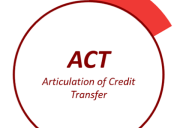You have /5 articles left.
Sign up for a free account or log in.
Accreditation has been getting increased attention lately. Some have issued sharp criticisms of a system they describe as “clueless” and willfully inattentive to issues that matter to students, such as affordability, outcomes and labor-market gains of graduates. Others argue that accreditors are stepping up in new and unexpected ways to meet the needs of a changed landscape.
While accreditors have tremendous influence over definitions of quality and success in postsecondary education, and they play a critical role in helping institutions meet the demands of their missions, accreditors have not historically been associated with promoting systematic, equity-driven reform of institutional policy and practice. In a recent opinion piece published by Inside Higher Ed, WASC Senior College and University Commission president Jamienne Studley argues that accreditation is both misunderstood and evolving. In describing accreditation as a system that “exists precisely to allow for tailored, predictive judgments applying broad standards to infinitely varied institutions,” Studley underscores the complexity of the accreditor role. But she also notes that with recent changes to the accreditation landscape and an environment still being shaped by the pandemic in unknown ways, accreditors are well positioned to modernize the conversation about the relationship among quality, equity, outcomes and institutional policy and practice.
Studley showcases how WSCUC, with its pioneering focus on disaggregated student data and its Statement of Commitment to Equity & Inclusion, is encouraging institutions to become more sophisticated in connecting the dots among “equity, outcomes, student success and institutional risk monitoring in a new landscape of national scope and innovation.” WSCUC’s new, public Key Indicators Dashboard and peer benchmarking exemplify its innovative approach.
During Tackling Transfer, the role of accreditation in transfer student success and recognition of learning was a frequent topic of conversation. In Transfer Reset, the Policy Advisory Board identified accreditation as an area ripe for further exploration. The board elevated the need to understand how accreditation might help the field to improve transfer outcomes, while also trying to understand why and how statements such as “we can’t do that because of accreditation” are used to slow down or halt reform efforts. As we’ve embarked on Beyond Transfer, the role of accreditation in transfer student success and recognition of learning has become a priority focus area for 2022.
In late 2021, Sova and WSCUC launched a one-year collaboration with support from ECMC Foundation and Ascendium Education Group to explore this territory with the goal of unearthing vital lessons for the field.
Over the course of 2022, our team at Sova, along with WSCUC vice president Stephanie Huie, will be engaging a small and diverse handful of WSCUC-accredited institutions in structured learning partnerships. These learning partnerships are designed to better understand the array of challenges facing universities with respect to supporting transfer student success, and to explore the role that accreditation might play in supporting universities in the hard work of achieving better and more equitable outcomes for transfer students.
Insights gleaned from the learning partnerships will inform WSCUC’s commitment to preparing institutions and review teams conducting accreditation site visits by including transfer student success in its Better Conversations, Better Data initiative. By using equity as a through line to connect the dots between transfer student outcomes and accreditation, we hope to inform both institutions and accreditors as they seek to center equitable outcomes in their quality improvement efforts. Simultaneously, we’ll be working with the Beyond Transfer Policy Advisory Board, a group of equity-focused expert practitioners, to explore the lessons learned on the ground and distill them for the field.
To be honest, we’re not sure what we’ll learn. In her opinion piece, Studley noted that many see accreditation as a “black box.” While some think that accreditation is a vital protector of quality and academic freedom, others worry that it can be a mechanism for preserving elitism and structural racism in higher education—or a convenient excuse. “My accreditor won’t let us do …” and “My accreditor made me do …” are equally common refrains that we hear from both advocates of change and those resisting reform of institutional policy and practice. Clearly, there’s more to learn here about the perceived and real roles accreditation plays for institutional actors implicated in large-scale efforts to achieve dramatically better and more equitable outcomes for students.
We are thrilled that WSCUC is willing to lead and explore and has shown examples of how it can and will evolve to meet the demands of our time. What can we hope for and expect of accreditors when it comes to fostering student-centered improvement? Are other institutional and programmatic accreditors linking equity, outcomes, student mobility, learner agency and quality? Can the equity-minded efforts of accreditors like WSCUC meaningfully contribute to the deep cultural and organizational change that institutions must commit to if they are to meet the needs of today’s learners? Only time—and action—will tell.
As our project unfolds over the next several months, we’ll be providing periodic updates and insights through this blog. We also welcome the insights of those who have worked to leverage accreditation processes and practices to promote transparent focus on equity in opportunity and outcomes for students who experience high-quality learning in a variety of venues such as the military and in the workplace, and who attend multiple institutions on their way to and through credentials of value. Reach out to us to share your ideas, experiences, stories and inspiration for others seeking to create the conditions for institutions to center the student experience and outcomes in conversations about educational quality.


